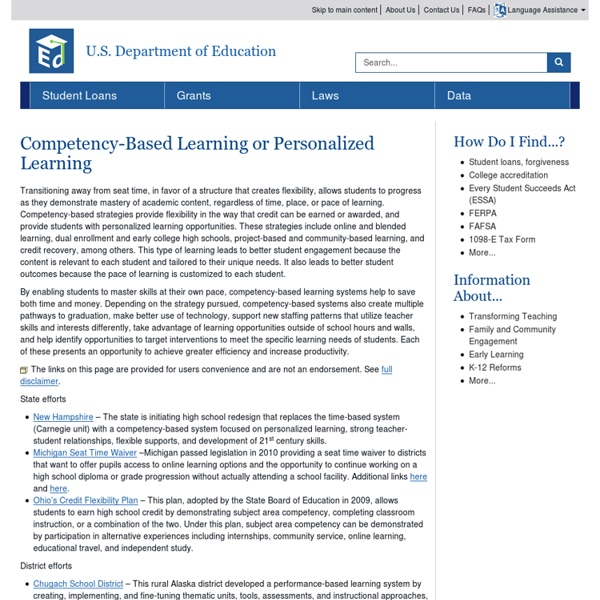Competency-Based Learning or Personalized Learning

Keeping Competency-Based Programs Relevant Over Time
By Brian Fleming, Senior Analyst One of the unique features of competency-based education (CBE) is its ability to offer market-ready academic programs in high demand disciplines that are readily aligned to specific industry needs. Over time, however, this presents a grave vulnerability in this market. From our research, we find a growing number of forward-looking institutions in CBE, including Southern New Hampshire University, Arizona State University, and Purdue University. Basic Strategy In this process, an institution actively and aggressively pursues partners and solicits their input, both at the outset of program design and as a critical component of program improvement. Effort and Impact Keep in mind that forging knowledge-sharing partnerships usually comes with varying degrees of effort and impact, depending on a partner’s position within an industry. Getting Started with Knowledge Sharing Partnerships Stating the benefits of these partnerships is one thing. Eduventures Summit
Office of Accreditation and Assessment @ Teachers College :: Student Learning
Student Learning Student learning outcomes are benchmarks for assessing what students know or can accomplish by the time they graduate. Student learning outcomes assessment is accordingly the systematic process of comparing measured outcomes against clearly stated goals for the knowledge, skills, habits of mind, and values that students should acquire during their academic career. Institution-wide assessment is a continuous cycle comprising a variety of activities, including curricular alignment, data collection, analysis, interpretation, reporting, and application of assessment results to both the improvement of instruction and refinement of the assessment process itself. Mission Teachers College, the nation’s oldest and largest graduate school of education, is dedicated to promoting excellence in education, and to overcoming the gap in educational access and achievement between the most and least advantaged groups in this country. Learning Goals and Outcomes
Related:
Related:



